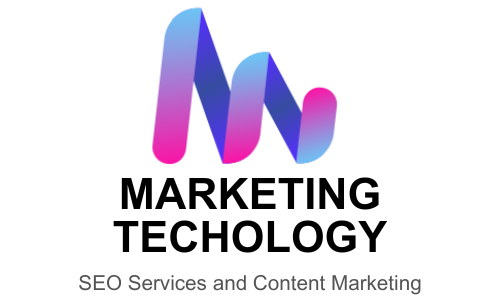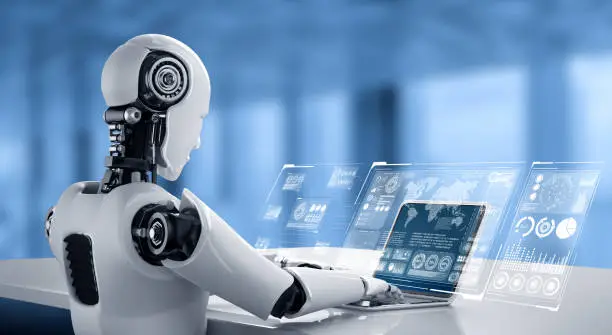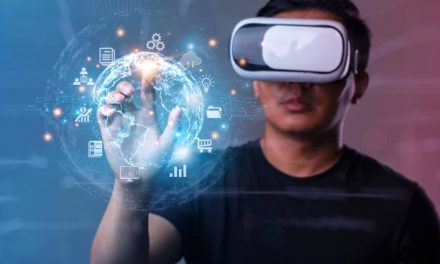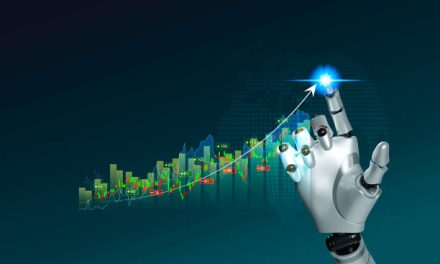Artificial Intelligence (AI) is revolutionizing the marketing landscape, offering businesses powerful tools to enhance their strategies, engage with customers, and drive growth. Whether you’re a small business owner or a marketing professional, understanding how to use AI in marketing can give you a competitive edge. This guide will walk you through the basics of AI in marketing, its benefits, and best practices to get started.
As technology advances, AI’s role in marketing becomes increasingly significant. From automating repetitive tasks to delivering personalized experiences, AI helps businesses of all sizes optimize their marketing efforts. By leveraging AI, companies can analyze large data sets, uncover trends, and make data-driven decisions that were previously impossible. This transformation allows businesses to connect with their audience more effectively, enhancing customer loyalty and boosting revenue.
What is AI in Marketing?
AI in marketing refers to the use of artificial intelligence technologies to automate, optimize, and improve marketing efforts. This includes data analysis, customer segmentation, content creation, personalized recommendations, and predictive analytics. AI algorithms can process vast amounts of data quickly, identify patterns, and make data-driven decisions that enhance marketing performance.
AI in marketing encompasses several technologies, including:
- Machine Learning (ML): A subset of AI that enables systems to learn from data and improve over time without being explicitly programmed. ML helps marketers predict customer behavior and optimize marketing campaigns.
- Natural Language Processing (NLP): Allows machines to understand, interpret, and respond to human language, enabling chatbots, voice assistants, sentiment analysis, and automated content creation.
- Computer Vision: Analyzes visual content such as images and videos, useful in social media monitoring, visual content optimization, and augmented reality marketing.
- Predictive Analytics: Uses historical data to forecast future trends and customer behaviors, aiding in demand forecasting, lead scoring, and customer retention strategies.
- Recommendation Engines: Deliver personalized product or content recommendations based on user behavior, significantly improving conversion rates.

How Do Digital Marketers Use AI?
Digital marketers leverage AI in various ways to improve efficiency and effectiveness:
1. Personalization
AI helps create personalized content and product recommendations based on user behavior and preferences. For example, e-commerce platforms use AI to suggest products that match a user’s browsing history and purchase patterns.
2. Chatbots and Customer Service
AI-powered chatbots provide real-time support, answer queries, and improve customer engagement. They can handle multiple conversations simultaneously, offering consistent and prompt responses while reducing the workload on human agents.
3. Predictive Analytics
AI analyzes past data to predict future trends, helping marketers make informed decisions. This can be used to forecast sales, identify potential leads, and optimize marketing campaigns.
4. Content Generation
AI tools can generate blog posts, social media content, and ad copy, saving time and resources. Tools like GPT-4 can produce high-quality content that aligns with brand voice and audience interests.
5. Email Marketing
AI optimizes email campaigns by analyzing user data to determine the best times to send emails and the most engaging content. It can also personalize subject lines and email content to increase open and click-through rates.
6. Ad Targeting
AI enhances ad targeting by analyzing user behavior, demographics, and preferences to deliver relevant ads. Programmatic advertising platforms use AI to automate the buying and placement of ads for maximum ROI.
7. SEO Optimization
AI tools can analyze search engine algorithms, suggest relevant keywords, and optimize website content to improve search rankings. AI-driven SEO platforms also monitor competitor activities to refine strategies.
8. Social Media Monitoring
AI tracks brand mentions, sentiment analysis, and trending topics on social media platforms, helping marketers respond proactively. It identifies emerging trends and helps brands engage with their audience in real-time.
9. Visual Recognition
AI can analyze images and videos to understand brand placement, audience engagement, and content performance, particularly on visual platforms like Instagram and TikTok.

Benefits of Using AI for Small Business Marketing
For small businesses, AI can be a game-changer:
- Cost-Effective: Automating tasks reduces the need for large marketing teams, allowing small businesses to compete with larger companies without incurring high costs.
- Improved Customer Insights: AI provides deep insights into customer behavior, helping businesses understand their audience better. This enables more targeted marketing efforts.
- Enhanced Efficiency: Automating repetitive tasks allows marketers to focus on strategic activities, such as creative development and campaign planning.
- Better ROI: AI-driven campaigns are more targeted and effective, leading to higher conversion rates. By optimizing ad spend and content strategies, businesses can achieve better results with less investment.
- 24/7 Customer Support: AI chatbots can handle customer inquiries around the clock, improving customer satisfaction and freeing up human resources for complex issues.
- Scalability: AI tools can easily scale with your business, allowing you to manage increased workloads without a proportional increase in costs.
- Competitive Advantage: By adopting AI early, small businesses can stay ahead of competitors who rely on traditional marketing methods.
- Data-Driven Decision Making: AI provides actionable insights that help small businesses make informed marketing decisions, reducing guesswork and enhancing strategy effectiveness.
- Increased Engagement: Personalized marketing powered by AI improves customer engagement, leading to higher loyalty and repeat business.

How to Use AI in Marketing? Best Practices
To effectively use AI in marketing, follow these best practices:
Define Your Goals: Identify what you want to achieve with AI, such as improving customer engagement, increasing sales, or optimizing campaigns. Clear goals help in selecting the right tools and measuring success.
1. Choose the Right Tools
Select AI tools that align with your marketing objectives, such as AI-driven analytics platforms, chatbots, or content generators. Popular tools include HubSpot for CRM automation, Jasper for content creation, and Hootsuite Insights for social media analytics.
2. Integrate with Existing Systems
Ensure AI tools integrate seamlessly with your current marketing platforms, such as CRM systems, email marketing software, and analytics tools. This integration facilitates data sharing and streamlined workflows.
3. Focus on Data Quality
High-quality data is crucial for AI to deliver accurate insights and recommendations. Clean, well-organized data improves AI performance and reduces errors.
4. Test and Optimize
Continuously monitor AI-driven campaigns, analyze performance, and make adjustments to improve results. A/B testing can help determine the effectiveness of AI-generated content and strategies.
5. Stay Updated
AI technology evolves rapidly. Keep up with the latest trends and advancements to stay competitive. Attend industry conferences, participate in webinars, and subscribe to AI-focused publications.
6. Train Your Team
Ensure your marketing team understands how to use AI tools effectively. Provide training sessions and resources to build AI literacy within your organization.

7. Ethical Considerations
Use AI responsibly by ensuring data privacy, avoiding biased algorithms, and maintaining transparency with customers about AI-driven interactions.
8. Start Small, Scale Gradually
Begin with small AI projects to test effectiveness, then scale successful initiatives across your marketing strategies.
9. Monitor AI Performance
Regularly review AI outputs to ensure they align with your brand’s goals and values. Adjust algorithms as needed to maintain effectiveness.
Conclusion
AI is not just the future of marketing—it’s the present. Businesses that embrace AI today are better positioned to meet customer expectations, optimize their strategies, and outpace competitors. From automating routine tasks to unlocking deep customer insights, AI offers endless possibilities for growth and innovation.
Ready to elevate your marketing game? Start integrating AI into your strategies and experience the transformative impact firsthand. For expert SEO services and content marketing strategies, Marketing Technology is here to help you harness the power of AI effectively. Let us guide you on the path to smarter, data-driven marketing success. Contact us now!

Frequently Asked Questions:
How to effectively use AI for marketing?
To effectively use AI in marketing, define clear goals, choose the right AI tools, focus on data quality, and continuously test and optimize your strategies. Additionally, integrating AI with existing systems and training your team can enhance the effectiveness of your marketing efforts.
How is AI being used in marketing?
AI is used in marketing for personalization, predictive analytics, content generation, customer service automation, email marketing optimization, and targeted advertising. It also plays a significant role in SEO optimization, social media monitoring, and programmatic advertising.
What is the best example of AI in marketing?
A great example of AI in marketing is Netflix’s recommendation system, which uses AI algorithms to analyze user behavior and suggest content tailored to individual preferences. Another notable example is Amazon’s personalized product recommendations, which drive significant revenue through AI-driven insights.





